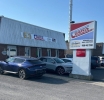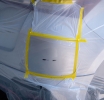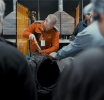Collision
Carrosserie Denis Inc Strengthens Its Market Position by Earning Official Certified Collision Center Status
Tariffs Are Here: What’s the Impact on the Collision Repair Industry?

Canada’s automotive industry is already bracing for a period of uncertainty. The implementation of new tariffs could have a significant impact on the national economy, and the first sector to feel it will undoubtedly be the auto industry. Collision repair professionals are now questioning how these changes will affect their business. However, before panic sets in, let’s review the facts and dispel the fears.
Repairs: What’s Not Changing?
Automotive repair is built on four pillars: labour, shop equipment, services/ subcontracting, and parts. Three of these elements will remain largely untouched by the new tariffs:
Labour: No tariff applies to the expertise of technicians. The quality and skills of Canadian professionals remain unchanged and are not affected by these new measures.
Shop Equipment: Most paints and consumables used in body shops come from European manufacturers. Since few of these products are made in the U.S., the impact of the tariffs will be minimal.
Services and Subcontracting: Key services such as dent removal, calibration, and frame straightening are not subject to these tariff barriers and will continue to operate as usual.
The Real Issue: Parts
If there is a source of concern, it lies in the parts market. Let’s look at the different supply options:
Recycled Parts: These components, sourced from dismantled vehicles in Canada or other tariff-free countries, will not see a cost increase.
Aftermarket Parts: Produced in Asia or elsewhere, replacement parts from independent manufacturers will only be marginally affected by the new U.S. tariffs.
Original Equipment Manufacturer (OEM) Parts: This is where it gets tricky. Excluding European brands, vehicles from American manufacturers (Ford, GM, Stellantis) may be the most affected. Tariffs on imports could drive up the prices of OEM parts from these brands.
Conclusion: Adapting to Weather the Storm
Although the new tariffs bring some uncertainty, it’s vital to adopt a pragmatic mindset. Labour, services, and most shop materials won’t be impacted. As for parts, the approach will need to be case-specific, depending on the vehicle brand, opting for recycled, aftermarket, or OEM parts based on where they’re produced.
The unknown is always unsettling, but by anticipating changes, collision repair professionals can mitigate the fallout. Strategic inventory and purchasing management will help soften the blow of price increases and ensure that quality service continues, despite looming economic turbulence.

L'Automobile Magazine
News
Business Directory



 En
En  Fr
Fr 



